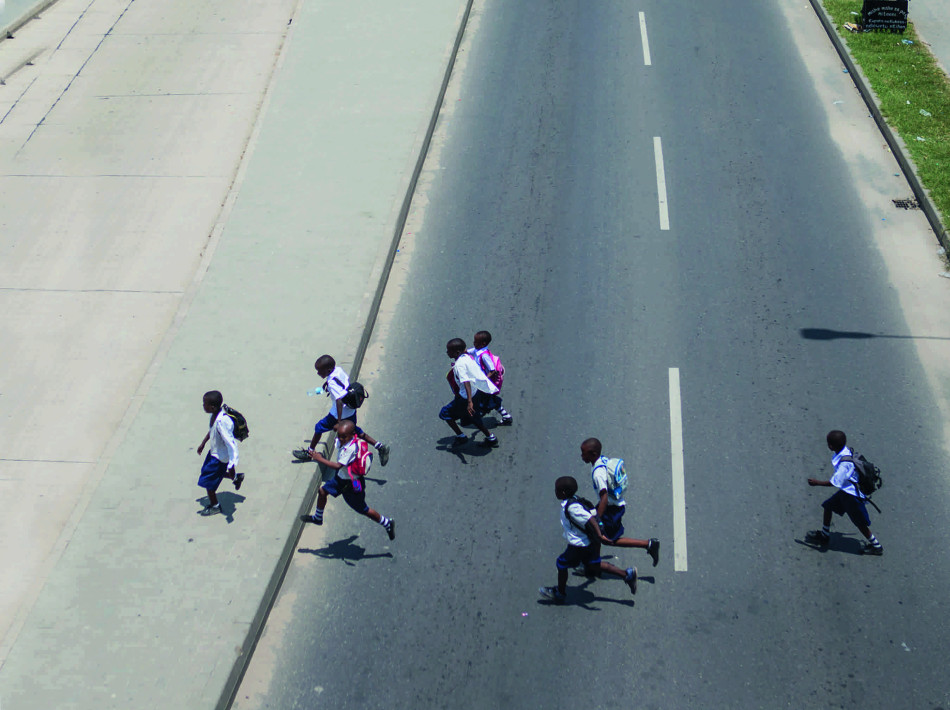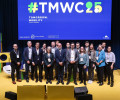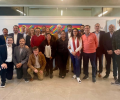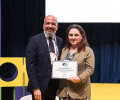From Auto #17: A safer walk to school
The school journey is fraught with danger for children in Africa, but now the FIA Foundation is working with other groups to create effective road safety solution.

Click here to read the full Auto #17 magazine.
To understand the destructive impact of Africa’s hidden road traffic injury epidemic on its children, meet Michael Obeng.
Michael is a young boy from an ordinary family in Accra, Ghana – his father works for a trader in car spare parts, and his mother has a small business selling disposable cups, plates and cutlery.
Despite these somewhat humble beginnings, all of his teachers agree that he has a very promising future. They describe him as being bright, intelligent and con dent.
However, in November 2015 Michael suffered a major setback when he was hit by a ‘trotro’ – a public minibus – on his way home from school. The roads around the school are busy at home time and there are no safe crossing places, so every day the pupils have to dart between traffic. The driver of the trotro was going fast and did not see Michael, who was dragged underneath the vehicle for several metres before it eventually came to a stop.
All the passengers disembarked and the trotro driver, with the assistance of one passenger, rushed Michael to hospital. One ankle, one hip and both of his knees were badly broken. He remained in hospital for two months and had two major operations.
He is now back at home, has missed school and has to visit the hospital twice a week. He cannot walk properly and cannot play with his friends. But his biggest concern is to not fall behind in school. At home, he sticks strictly to the school timetable, using his books to teach himself. Incredibly, he remains cheerful and optimistic.
Michael’s parents and extended family support him as well as their means allow. The medical bills and other expenses have come to over $2,000, which was beyond the means of his parents, even more so as their combined monthly income of around $125 reduced when Michael’s mother had to leave her job to care for him.
Michael’s aunt took out a bank loan of around $1,300 – with an astronomical interest rate. The National Health Insurance Scheme, with which Michael is registered, has covered very little of the costs. Recognising Michael’s potential, his family are doing everything they can to support his education, even to the detriment of some of his siblings.
Michael’s story is, unfortunately, not an isolated case. According to analysis from the Global Burden of Disease, more than 85,000 African children and youths are killed or seriously injured on the continent’s roads each year – a top five cause of death for the over-fives in many African countries. Many more children have their life journey disrupted or set on a downward trajectory through loss or injury of a family breadwinner.
A new report by the FIA Foundation, the Global Initiative for Child Health and Mobility and the NGO Amend calls for urgent action to address this crisis.
The report, entitled ‘Step Change: An Action Agenda on Safe Walking for Africa’s Children’, shows that while three quarters of children walk to and from school, their needs are neglected, with inadequate footpaths or safe crossings and limited e orts to manage vehicle speed.
Step Change outlines the life-saving policies and interventions that are urgently required. Prioritising investment for safe walking, through providing footpaths and safe crossing points, and through reducing vehicle speed by road design and traffic calming, is a relatively low-cost but highly effective public health investment, says the report. It is an argument that has recently been boosted by inclusion of the objective of ‘safe and healthy journeys to school for every child as a priority’ in the UN’s new global agenda for sustainable development of the world’s cities.
Nelson Mandela’s granddaughter Zoleka Mandela lost her own daughter to a road crash in South Africa. She launched the report at a Forum on Safe & Healthy School Journeys in Accra in September. In her role as ambassador for the Global Initiative for Child Health and Mobility, she said: “This crisis on our continent has been ignored for too long. Road traffic injury is the single greatest danger our children face each and every day. It is entirely preventable. What we’re asking for, really, is quite simple. We’re asking for protection and safety. Safe walking for all our children surely must be a fundamental right. No excuses are acceptable. This must become a priority in policy making here in Ghana and around the world.”
The solutions to the crisis on the roads of Africa are straightforward and effective. Research by the Amend NGO has shown that providing footpaths, safe crossings and speed reduction measures in the area of schools alone can reduce injuries by at least 25 per cent. Amend’s interventions, with support from the FIA Foundation, have demonstrated that focusing relatively low-cost infrastructure improvements on the schools with the highest road traffic injury rates prevents one road traffic injury for every 286 at-risk children, reducing serious head injuries by half.
This approach benefits not only children but all road users on a continent where at least 50 per cent of people do not have access to a car. It is a health investment that also improves transport efficiency, urban liveability, local environmental quality and access to education. It can safeguard the productive future and economic potential of millions of children.
The launch of the report in Accra coincided with Michael Obeng’s first day back at school. The little boy who had been so brutalised by a horrific road traffic crash had shown determination and courage to get back to his studies at school. With road safety included in the Sustainable Development Goals and a commitment to a safe and healthy journey to school for every child in the United Nation’s new urban agenda, there is international momentum for action. Now, this needs to translate into real change for children like Michael.
Africa’s leaders and the international community have talked about road safety for long enough. Now is the time to walk the talk. This serious – and growing – epidemic threatens millions of lives. It is a civil rights issue for the 21st century. We need a dramatic step change in response.

 Facebook
Facebook Twitter
Twitter






